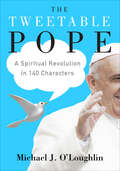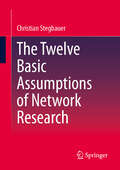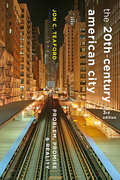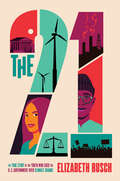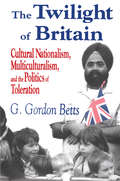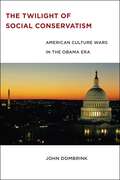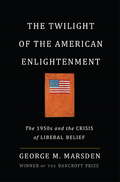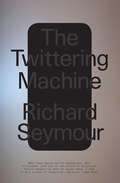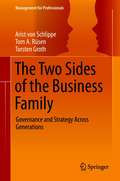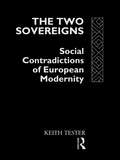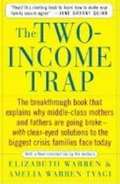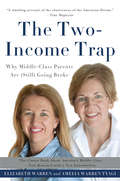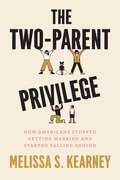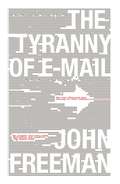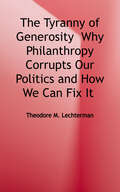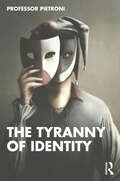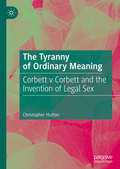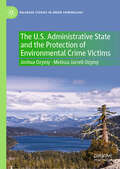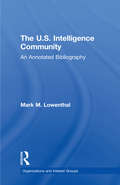- Table View
- List View
The Tweetable Pope: A Spiritual Revolution in 140 Characters
by Michael J. O'LoughlinBoston Globe journalist and Catholic commentator Michael O’Loughlin opens a wonderful window into the heart and revolutionary mission of Pope Francis by examining his extensive and revelatory use of social media—published to coincide with the pontiff’s visit to the United States in September 2015.Michael O’Loughlin uses Pope Francis’s almost daily “tweets” to his 21 million followers to explain why this pope has captured the world’s imagination and to explore his strategy and vision for the Catholic Church. Grouped by the Pope’s most pressing concerns—forgiveness, mercy, injustice, poverty, war, joy, the environment, and more—The Tweetable Pope uses Francis’ pithy 140-character (or fewer) missives as a prism to view the biographical, historical, and spiritual context of his messages and how each is part of a larger vision.O’Loughlin contends that these seemingly simple communications provide a direct line to the Pope’s heart, illuminating a peaceful, loving, and courageous visionary committed to restoring the church to the original Christian tenets of its founder, Jesus Christ—love, mercy, grace, and compassion—and reshaping it as a force for change to help the most needy. A thoughtful and enlightening examination of how the pope is using this exciting and fascinating new medium to communicate directly to his flock, The Tweetable Pope is an inspiring and moving testimony of how we, too, can be more centered on what matters most to God.
The Twelve Basic Assumptions of Network Research
by Christian StegbauerThe book provides an orientation in network research grounded in the dozen most important assumptions that characterize this field. It shows why relationship structures and strengths are important. The structure of relationships is crucial for behavioral patterns and cultural developments. The book introduces the concept of "cognitive social structure" to explain how our behavior depends on our knowledge of social networks.
The Twentieth-Century American City: Problem, Promise, and Reality (The American Moment)
by Jon C. TeafordModern cities embody America’s successes and failures—while offering hope for the future.Throughout the twentieth century, the city was deemed a problematic space, one that Americans urgently needed to improve. Although cities from New York to Los Angeles served as grand monuments to wealth and enterprise, they also reflected the social and economic fragmentation of the nation. Race, ethnicity, and class splintered the metropolis both literally and figuratively, thwarting efforts to create a harmonious whole. The urban landscape revealed what was right—and wrong—with both the country and its citizens’ way of life. In this thoroughly revised edition of his highly acclaimed book, Jon C. Teaford updates the story of urban America by expanding his discussion to cover the end of the twentieth century and the first years of the next millennium. A new chapter on urban revival initiatives at the close of the century focuses on the fight over suburban sprawl as well as the mixed success of reimagining historic urban cores as hip new residential and cultural hubs. The book also explores the effects of the late-century immigration boom from Latin America and Asia, which has complicated the metropolitan ethnic portrait.Drawing on wide-ranging primary and secondary sources, Teaford describes the complex social, political, economic, and physical development of US urban areas over the course of the long twentieth century. Touching on aging central cities, technoburbs, and the ongoing conflict between inner-city poverty and urban boosterism, The Twentieth-Century American City offers a broad, accessible overview of America’s persistent struggle for a better city.
The Twenty-One: The True Story of the Youth Who Sued the U.S. Government Over Climate Change
by Elizabeth RuschCompelling and timely, award-winning author Elizabeth Rusch’s The Twenty-One tells the gripping inside story of the ongoing landmark federal climate change lawsuit, Juliana vs. United States of America. The Twenty-One is for readers of Christina Soontornvat’s All Thirteen, fans of Steve Sheinkin’s books, and anyone interested in the environment and climate change, as well as youth activism, politics and government, and the law. From severe flooding in Louisiana to wildfires in the Pacific Northwest to melting permafrost in Alaska, catastrophic climate events are occurring more frequently—and severely—than ever. And these events are having a direct impact on the lives (and futures) of young people and their families. In the ongoing landmark case Juliana vs. United States, twenty-one young plaintiffs claim that the government’s support of the fossil-fuel industry is actively contributing to climate change, and that all citizens have a constitutional right to a stable climate—especially children and young adults, because they cannot vote and will inherit the problems of the future.Elizabeth Rusch’s The Twenty-One is a gripping legal and environmental thriller that tells the story of twenty-one young people and their ongoing case against the U.S. government for denying their constitutional right to life and liberty. A rich, informative, and multifaceted read, The Twenty-One stars the young plaintiffs and their attorneys; illuminates the workings of the United States’s judicial system and the relationship between government, citizens’ rights, and the environment; and asks readers to think deeply about the future of our planet. Features extensive backmatter, including a timeline, glossary, call to action, additional resources, and photographs.
The Twilight of Britain: Cultural Nationalism, Multi-Culturalism and the Politics of Toleration
by G. Gordon Betts"Betts is to be commended on his careful and insightful elucidation of the complex and novel sets of dilemnas now facing the British people at a time of superficial calm masking serious divisions."--AlbionThe erosion of British sovereignty, national identity and culture, the subversion of its history and traditions, and the demoralization of its institutions and public services, are a source of increasing unease to many. The process began, Betts argues, with the end of the colonial empires. Since the beginning of the last decade, concern about the consequences has been heightened by global instability. The demise of the Communist empire, the rise of national independence movements, and the eruption of long standing and bitter ethno-national conflicts have resulted in a mass migration of economic refugees and asylum seekers to Britain and other Western nations. In Britain, public attitudes are ambivalent. In part this is a consequence of the promotion of the myth of the multiracial Commonwealth, the regional devolution of the United Kingdom, and the transition from a European Economic Union into a politically federalized European super-state. Britain's national interests have become secondary to those of the United Nations and an inchoate and unwilling international community. Influenced by an outmoded UN Convention on Refugees and the lack of a consistent immigration policy and failure of those immigration controls that do exist, gradual but major political, social, and cultural shifts have occurred without the express consent of the majority of the British electorate. Virtually all public debate by the government and by politicians on these issues has been taboo, effectively silenced by fear of being accused of xenophobia, discrimination, and racism. The result is cynicism and disenchantment with the political process as a whole. Betts's objective is to promote responsible and informed discussion of these issues. In the absence of this, he warns, we risk the twilight of a harmonious British society, diminished pride in British institutions and national identity, and competing and conflicting separatist ethnic, racial, and cultural claims. Twilight of Britain will be of interest to general readers, those interested in modern Britain and Europe, as well as sociologists, political scientists, and philosophers. G. Gordon Betts was educated in the Universities of Cambridge, Birmingham, Greenwich, and Kent at Canterbury. He is a chartered chemical engineer, having spent his professional career with a major British oil company in the petrochemical industry.
The Twilight of Social Conservatism: American Culture Wars in the Obama Era
by John DombrinkDespite many Americans’ triumphant proclamations that Barack Obama’s 2008 and 2012 elections signified a post-partisan, post-racial society, it seems that the United States is more divided than ever. From the rise of the Tea Party, to strident anti-immigration and anti-welfare movements, to the so-called “war on women”, the United States on its surface appears to be caught in the turmoil of a culture war that has not relented since the Reagan era. But, as John Dombrink writes in The Twilight of Social Conservatism, the conservative backlash seen during Obama’s presidency is indicative not of a rising social conservative force in society, but of a waning one.Drawing on demographic research, political polls, contemporary media, and internet commentary, Dombrink demonstrates that the vitality of major social conservative ideas from the culture war era has faded. Support for once-divisive wedge issues, like same-sex marriage and reproductive rights, has increased dramatically, and Americans, particularly young Americans, are less religious and more libertarian than ever before. As he traces the end of the culture wars and the “unwedging” of American politics over the last eight years, Dombrink is quick to caution that social conservatism has not disappeared entirely from view. Nevertheless, the once-prominent “Moral Majority” pushing for dominance in American culture is now reconsidering itself as a minority, and Dombrink argues that it is unlikely that social conservative forces will ever regain the power and potency they once held in American politics. A comprehensive and insightful work, The Twilight of Social Conservatism deftly analyzes the liberalizing trends that created the social and political culture America has today and that portend to the culture America will have in years to come.
The Twilight of the American Enlightenment: The 1950s and the Crisis of Liberal Belief
by George MarsdenIn the aftermath of World War II, the United States stood at a precipice. The forces of modernity unleashed by the war had led to astonishing advances in daily life, but technology and mass culture also threatened to erode the country’s traditional moral character. As award-winning historian George M. Marsden explains in [Title TK], postwar Americans looked to the country’s secular, liberal elites for guidance in this precarious time, but these intellectuals proved unable to articulate a coherent common cause by which America could chart its course. Their failure lost them the faith of their constituents, paving the way for a Christian revival that offered America a firm new moral vision-one rooted in the Protestant values of the founders. A groundbreaking reappraisal of the country’s spiritual reawakening, [Title TK] shows how America found new purpose at the dawn of the Cold War.
The Twitter Book (O'reilly Ser.)
by Tim O'Reilly Sarah MilsteinTwitter is not just for talking about your breakfast anymore. It's become an indispensable communications tool for businesses, non-profits, celebrities, and people around the globe. With the second edition of this friendly, full-color guide, you'll quickly get up to speed not only on standard features, but also on new options and nuanced uses that will help you tweet with confidence. Co-written by two widely recognized Twitter experts, The Twitter Book is packed with all-new real-world examples, solid advice, and clear explanations guaranteed to turn you into a power user. Use Twitter to connect with colleagues, customers, family, and friends Stand out on Twitter Avoid common gaffes and pitfalls Build a critical communications channel with Twitter--and use the best third-party tools to manage it. Want to learn how to use Twitter like a pro? Get the book that readers and critics alike rave about.
The Twittering Machine
by Richard SeymourA brilliant probe into the political and psychological effects of our changing relationship with social mediaFormer social media executives tell us that the system is an addiction-machine. We are users, waiting for our next hit as we like, comment and share. We write to the machine as individuals, but it responds by aggregating our fantasies, desires and frailties into data, and returning them to us as a commodity experience. The Twittering Machine is an unflinching view into the calamities of digital life: the circus of online trolling, flourishing alt-right subcultures, pervasive corporate surveillance, and the virtual data mines of Facebook and Google where we spend considerable portions of our free time. In this polemical tour de force, Richard Seymour shows how the digital world is changing the ways we speak, write, and think. Through journalism, psychoanalytic reflection and insights from users, developers, security experts and others, Seymour probes the human side of the machine, asking what we&’re getting out of it, and what we&’re getting into. Social media held out the promise that we could make our own history–to what extent did we choose the nightmare that it has become?
The Two Sides of the Business Family: Governance and Strategy Across Generations (Management for Professionals)
by Tom A. Rüsen Arist von Schlippe Torsten GrothThis book focuses on a central success factor for family businesses: maintaining the decision-making ability over generations while not jeopardizing the business due to family conflict, inefficient governance structures, or lack of identification. The authors identify that this is not as easy as the endeavor to bring two social systems together with contradicting logic (family and business) leads to many dangerous pitfalls. This book presents outcomes of a unique research project in which family managers of eleven of the oldest and largest German family businesses, at least the fourth generation, met for more than three years on a regular basis and presented the essence of their family governance structures to each other and to the authors. It was a joint “learning journey” that admits identifying twelve core questions that these families had been answering to keep up the relationship between family and business successfully over generations. Obviously, there is no “right” answer to these questions. The key to success is rather engaging the families in a process to find out their own answers and make them aware of the “two sides”: being a family is different from being a business family.
The Two Sovereigns: Social Contradictions of European Modernity
by Keith TesterThis book is invariably stimulating, containing many interesting and provocative ideas on issues central both to social theory and to making sense of the world(s) in which we live. It develops a series of original images or metaphors - gardens v. allotments, double strangers and so on - as aids to understanding social processes. Lively, bold and assured it will interest students of social theory, political science and philosophy.
The Two-Income Trap
by Elizabeth Warren Amelia Warren TyagiIn this revolutionary exposé, Harvard Law School bankruptcy expert Elizabeth Warren and financial consultant Amelia Tyagi show that today's middle-class parents are increasingly trapped by financial meltdowns. Astonishingly, sending mothers to work has made families more vulnerable to financial disaster than ever before. Today's two-income family earns 75% more money than its single-income counterpart of a generation ago, but has 25% less discretionary income to cover living costs. This is "the rare financial book that sidesteps accusations of individual wastefulness to focus on institutional changes," raved the Boston Globe. Warren and Tyagi reveal how the ferocious bidding war for housing and education has silently engulfed America's suburbs, driving up the cost of keeping families in the middle class. The authors show why the usual remedies-child-support enforcement, subsidized daycare, and higher salaries for women-won't solve the problem. But as the Wall Street Journal observed, "The book is brimming with proposed solutions to the nail-biting anxiety that the middle class finds itself in: subsidized day care, school vouchers, new bank regulation, among other measures. " From Senator Edward M. Kennedy to Dr. Phil to Bill Moyers, The Two-Income Trap has created a sensation among economists, politicians, and families-all those who care about America's middle-class crisis.
The Two-Income Trap
by Elizabeth Warren Amelia Warren TyagiIn this revolutionary exposé, Harvard Law School bankruptcy expert Elizabeth Warren and financial consultant Amelia Tyagi show that today's middle-class parents are increasingly trapped by financial meltdowns. Astonishingly, sending mothers to work has made families more vulnerable to financial disaster than ever before. Today's two-income family earns 75% more money than its single-income counterpart of a generation ago, but has 25% less discretionary income to cover living costs. This is "the rare financial book that sidesteps accusations of individual wastefulness to focus on institutional changes," raved the Boston Globe. Warren and Tyagi reveal how the ferocious bidding war for housing and education has silently engulfed America's suburbs, driving up the cost of keeping families in the middle class. The authors show why the usual remedies-child-support enforcement, subsidized daycare, and higher salaries for women-won't solve the problem. But as the Wall Street Journal observed, "The book is brimming with proposed solutions to the nail-biting anxiety that the middle class finds itself in: subsidized day care, school vouchers, new bank regulation, among other measures." From Senator Edward M. Kennedy to Dr. Phil to Bill Moyers, The Two-Income Trap has created a sensation among economists, politicians, and families-all those who care about America's middle-class crisis.
The Two-Income Trap
by Elizabeth Warren Amelia Warren TyagiIn this revolutionary exposé, Harvard Law School bankruptcy expert Elizabeth Warren and financial consultant Amelia Tyagi show that today's middle-class parents are increasingly trapped by financial meltdowns. Astonishingly, sending mothers to work has made families more vulnerable to financial disaster than ever before. Today's two-income family earns 75% more money than its single-income counterpart of a generation ago, but has 25% less discretionary income to cover living costs. This is "the rare financial book that sidesteps accusations of individual wastefulness to focus on institutional changes," raved the Boston Globe. Warren and Tyagi reveal how the ferocious bidding war for housing and education has silently engulfed America's suburbs, driving up the cost of keeping families in the middle class. The authors show why the usual remedies-child-support enforcement, subsidized daycare, and higher salaries for women-won't solve the problem. But as the Wall Street Journal observed, "The book is brimming with proposed solutions to the nail-biting anxiety that the middle class finds itself in: subsidized day care, school vouchers, new bank regulation, among other measures. " From Senator Edward M. Kennedy to Dr. Phil to Bill Moyers, The Two-Income Trap has created a sensation among economists, politicians, and families-all those who care about America's middle-class crisis.
The Two-Income Trap
by Elizabeth Warren Amelia Warren TyagiIn this revolutionary exposé, Harvard Law School bankruptcy expert Elizabeth Warren and financial consultant Amelia Tyagi show that today's middle-class parents are increasingly trapped by financial meltdowns. Astonishingly, sending mothers to work has made families more vulnerable to financial disaster than ever before. Today's two-income family earns 75% more money than its single-income counterpart of a generation ago, but has 25% less discretionary income to cover living costs. This is "the rare financial book that sidesteps accusations of individual wastefulness to focus on institutional changes," raved the Boston Globe. Warren and Tyagi reveal how the ferocious bidding war for housing and education has silently engulfed America's suburbs, driving up the cost of keeping families in the middle class. The authors show why the usual remedies-child-support enforcement, subsidized daycare, and higher salaries for women-won't solve the problem. But as the Wall Street Journal observed, "The book is brimming with proposed solutions to the nail-biting anxiety that the middle class finds itself in: subsidized day care, school vouchers, new bank regulation, among other measures." From Senator Edward M. Kennedy to Dr. Phil to Bill Moyers, The Two-Income Trap has created a sensation among economists, politicians, and families-all those who care about America's middle-class crisis.
The Two-Income Trap: Why Middle-Class Parents Are (Still) Going Broke
by Elizabeth Warren Amelia Warren TyagiMore than two decades ago, the women's movement flung open the doors of the workplace. Although this social revolution created a firestorm of controversy, no one questioned the idea that women's involvement in the workforce was certain to improve families' financial lot. Until now.In this brilliantly argued book, Harvard Law School bankruptcy expert Elizabeth Warren and business consultant Amelia Tyagi show that today's middle-class parents are suffering from an unprecedented and totally unexpected economic meltdown. Astonishingly, sending mothers to work has made families more vulnerable than ever before. Today's two-income family earns 75% more money than its single-income counterpart of a generation ago, but actually has less discretionary income once their fixed monthly bills are paid.How did this happen? Warren and Tyagi provide convincing evidence that the culprit is not "overconsumption," as many critics have charged. Instead, they point to the ferocious bidding war for housing and education that has quietly engulfed America's suburbs. Stay-at-home mothers once provided a financial safety net if disaster struck; their move into the workforce has left today's families chillingly at risk. The authors show why the usual remedies--child-support enforcement, subsidized daycare, and higher salaries for women--won't solve the problem, and propose a set of innovative solutions, from rate caps on credit cards to open-access public schools, to restore security to the middle class.
The Two-Income Trap: Why Middle-Class Parents Are Going Broke
by Elizabeth Warren Amelia Warren TyagiIn this revolutionary exposé, Harvard Law School bankruptcy expert Elizabeth Warren and financial consultant Amelia Tyagi show that today's middle-class parents are increasingly trapped by financial meltdowns. Astonishingly, sending mothers to work has made families more vulnerable to financial disaster than ever before. Today's two-income family earns 75% more money than its single-income counterpart of a generation ago, but has 25% less discretionary income to cover living costs. This is "the rare financial book that sidesteps accusations of individual wastefulness to focus on institutional changes," raved the Boston Globe. Warren and Tyagi reveal how the ferocious bidding war for housing and education has silently engulfed America's suburbs, driving up the cost of keeping families in the middle class. The authors show why the usual remedies-child-support enforcement, subsidized daycare, and higher salaries for women-won't solve the problem. But as the Wall Street Journal observed, "The book is brimming with proposed solutions to the nail-biting anxiety that the middle class finds itself in: subsidized day care, school vouchers, new bank regulation, among other measures. " From Senator Edward M. Kennedy to Dr. Phil to Bill Moyers, The Two-Income Trap has created a sensation among economists, politicians, and families-all those who care about America's middle-class crisis.
The Two-Parent Privilege: How Americans Stopped Getting Married and Started Falling Behind
by Melissa S. KearneyThe surprising story of how declining marriage rates are driving many of the country’s biggest economic problems. In The Two-Parent Privilege, Melissa S. Kearney makes a provocative, data-driven case for marriage by showing how the institution’s decline has led to a host of economic woes—problems that have fractured American society and rendered vulnerable populations even more vulnerable. Eschewing the religious and values-based arguments that have long dominated this conversation, Kearney shows how the greatest impacts of marriage are, in fact, economic: when two adults marry, their economic and household lives improve, offering a host of benefits not only for the married adults but for their children. Studies show that these effects are today starker, and more unevenly distributed, than ever before. Kearney examines the underlying causes of the marriage decline in the US and draws lessons for how the US can reverse this trend to ensure the country’s future prosperity. Based on more than a decade of economic research, including her original work, Kearney shows that a household that includes two married parents—holding steady among upper-class adults, increasingly rare among most everyone else—functions as an economic vehicle that advantages some children over others. As these trends of marriage and class continue, the compounding effects on inequality and opportunity grow increasingly dire. Their effects include not just children’s behavioral and educational outcomes, but a surprisingly devastating effect on adult men, whose role in the workforce and society appears intractably damaged by the emerging economics of America’s new social norms. For many, the two-parent home may be an old-fashioned symbol of the idyllic American dream. But The Two-Parent Privilege makes it clear that marriage, for all its challenges and faults, may be our best path to a more equitable future. By confronting the critical role that family makeup plays in shaping children’s lives and futures, Kearney offers a critical assessment of what a decline in marriage means for an economy and a society—and what we must do to change course.
The Tyranny of E-mail: The Four-thousand-year Journey to Your Inbox
by John Freeman"The computer and e-mail were sold to us as tools of liberation, but they have actually inhibited our ability to conduct our lives mindfully, with the deliberation and consideration that are the hallmark of true agency." The first e-mail was sent less than forty years ago; by 2011, there will be 3.2 billion e-mail users. The average corporate worker now receives upwards of two hundred e-mails per day. The flood of messages is ceaseless and follows us everywhere. We check e-mail in transit; we check it in the bath. We check it before bed and upon waking up. We check it even in midconversation, blithely assuming no one will notice. We no longer make our own to-do list. E-mail does. It's time for a break. In The Tyranny of E-mail, John Freeman takes an entertaining look at the nature of correspondence through the ages. From love poems delivered on clay tablets to the art of the letter to the first era of information overload (via the telegraph) to the vast network brought on by the Internet, Freeman answers the difficult question, Where is this taking us? Put down your BlackBerry and consider the consequences. As the toll of e-mail mounts by reducing our time for leisure and contemplation and by separating us from one another in an unending and lonely battle with the overfull inbox, John Freeman -- one of America's preeminent literary critics -- enters a plea for communication that is more selective and nuanced and, above all, more sociable.
The Tyranny of Generosity: Why Philanthropy Corrupts Our Politics and How We Can Fix It
by Theodore M. LechtermanThe practice of philanthropy, which releases private property for public purposes, represents in many ways the best angels of our nature. But this practice's noteworthy virtues often obscure the fact that philanthropy also represents the exercise of private power. <p><p>In The Tyranny of Generosity, Theodore Lechterman shows how this private power can threaten the foundations of a democratic society. The deployment of private wealth for public ends may rival the authority of communities to determine their own affairs. And, in societies characterized by wide disparities in wealth, philanthropy often combines with background inequalities to make public decisions overwhelmingly sensitive to the preferences of the rich. Allowing private wealth to dictate social outcomes collides with core commitments of a democratic society, a society in which people are supposed to determine their common affairs together, on equal terms. <p><p>But why exactly is democracy valuable? How should these values be weighed against the liberty of donors and the many social benefits that philanthropy promises? Lechterman explores these questions by examining various topics in the practice of philanthropy: the respective roles of philanthropy and government, public subsidies for private giving, the use of donations for political speech, instruments of perpetual giving, the rise in giving by commercial corporations, and "effective altruism" as a guide for individual giving. <p><p>These studies build to a surprising conclusion: realizing the democratic ideal may be impossible without philanthropy—but making philanthropy safe for democracy also requires fundamental changes to policy and practice.
The Tyranny of Identity
by Patrick PietroniThe Tyranny of Identity is both a personal and highly interdisciplinary examination of the wide range of factors and disciplines at play in the formation of identity. It takes a novel and unique approach to this through use of metaphor, images, poetry and a wide range of academic sources to provide a holistic approach to the study of identity. This book uses the concept of Babushka dolls to show that we all have a series of activities during our lives that reside in our mind, body, spirit – each influencing the multiple identities we knowingly or unknowingly possess. This collage of factors and forces allows us to create an identity. The layers of identity unfold as the chapters progress and in doing so the book addresses the manifold ways in which identity intersects with nationhood, politics, education, the culture wars, family, religion, gender and contemporary institutions. The Tyranny of Identity is a wide-ranging, cross-cultural book that integrates and explores how the issue of identity has become a central issue in every academic discipline. This book is essential reading to all students studying identity and all readers seeking a deeper understanding of this complex topic.
The Tyranny of Ordinary Meaning: Corbett v Corbett and the Invention of Legal Sex
by Christopher HuttonThis book offers an in-depth analysis of the case of Corbett v Corbett, a landmark in terms of law’s engagement with sexual identity, marriage, and transgender rights. The judgement was handed down in 1970, but the decision has shaped decades of debate about the law’s control and recognition of non-normative gender identities. The decision in this case – that the marriage between the Hon. Arthur Corbett and April Ashley was void on the grounds that April Ashley had been born male – has been profoundly influential across the common law world, and came as a dramatic and intolerant intervention in developing discussions about the relationships between medicine, law, questions of sex versus gender, and personal identity. The case raises fundamental questions concerning law in its historical and intellectual context, in particular relating to the centrality of ordinary language for legal interpretation, and this book will be of interest to students and scholars of language and law, legal history, gender and sexuality.
The U.S. Administrative State and the Protection of Environmental Crime Victims (Palgrave Studies in Green Criminology)
by Joshua Ozymy Melissa Jarrell OzymyThis accessible book provides the first comprehensive analysis of environmental crime victims within criminal prosecutions in the United States. By combining empirical analysis of criminal investigations undertaken by the U.S. Environmental Protection Agency from 1983-2022 with narrative discussion of numerous related criminal prosecutions, it provides novel insights to help advance a stronger empirical understanding of how the administrative state protects victims of environmental harm, punishes environmental offenders, and aids in furthering the development of an environmental victimology.
The U.S. Christian Right and Pro-Family Politics in 21st Century Africa
by Haley McEwenThis book will address and uncover the role of US Christian Right ‘pro-family’ groups in mobilizing counter-movements against LGBTIQ+ human rights, reproductive justice, and sexuality education in Africa, and will intervene in the tendency to exceptionalize Africa as a ‘homophobic continent’ following the surge in homophobic and transphobic legislation, hate speech, and violence in recent years. The author employs the lens of decoloniality in an intersectional manner to unpack the multiple forms of hierarchy and oppression that the concept of the nuclear family has historically worked to naturalize in the interests of capitalism, Christo-normativity, and a world system dominated and controlled by the global north. Proceeding from the historical geopolitical context informing nuclear family idealization, the analysis then presents a critical discussion of contemporary pro-family discourses, showing that pro-family narratives that universalize and politicize the notion of ‘family’ are not only constituting agendas that erode LGBTIQ+ and reproductive justice, but reinforce an international order that privileges Euro-American interests despite pro-family claims that their agendas are anti-imperialist. This book will be of interest to scholars in gender, sexuality, and queer studies; postcolonial studies; and international relations.
The U.S. Intelligence Community: An Annotated Bibliography (Organizations and Interest Groups #Vol. 11)
by Mark M. LowenthalFirst published in 1995. This series seeks to consolidate published material on a wide variety of public, private, and non-profit organizations including: (a) federal agencies, Congressional committees, the judicial branch, and international bodies; (b) corporations, interest groups, trade unions, and consulting firms; as well as (c) professional associations, scientific societies, and educational institutions. This text offers an organised volume of intelligence literature. Intelligence is the collection and analysis of information about threats at home and abroad for use by policymakers as they make key decisions-is widely recognized as the nation's first line of defense in protecting itself against dangers from overseas and subversive activities at home.
